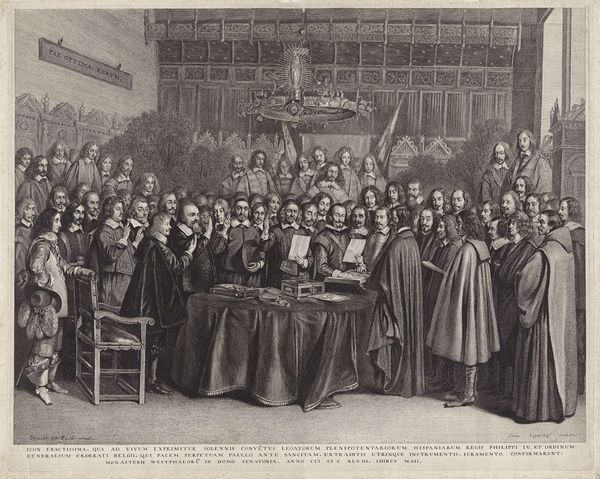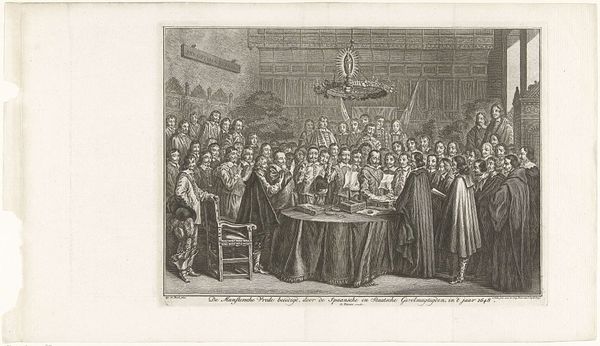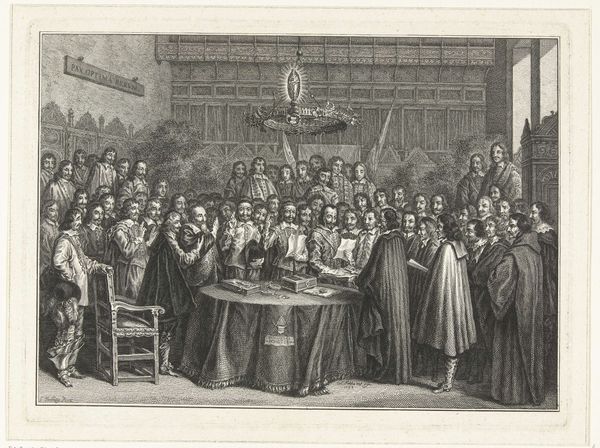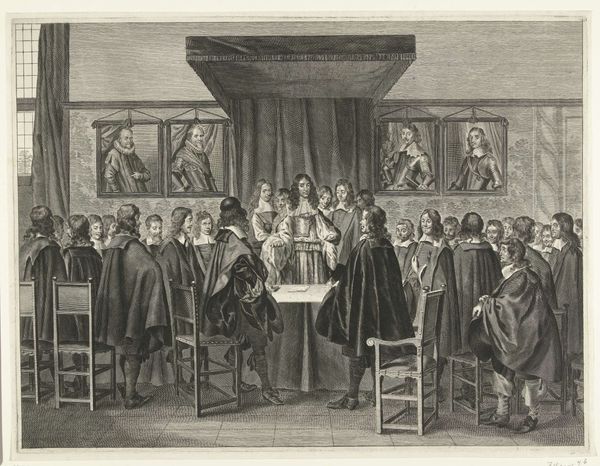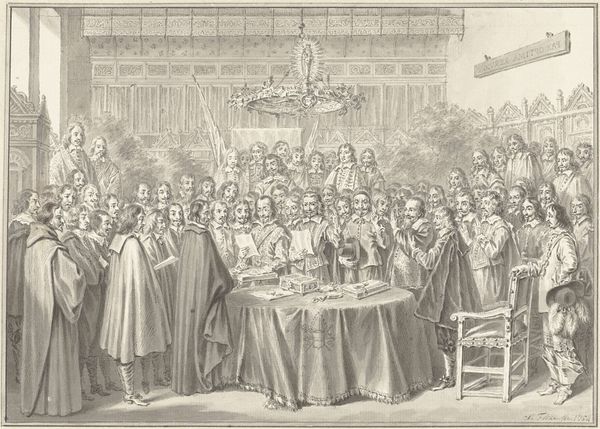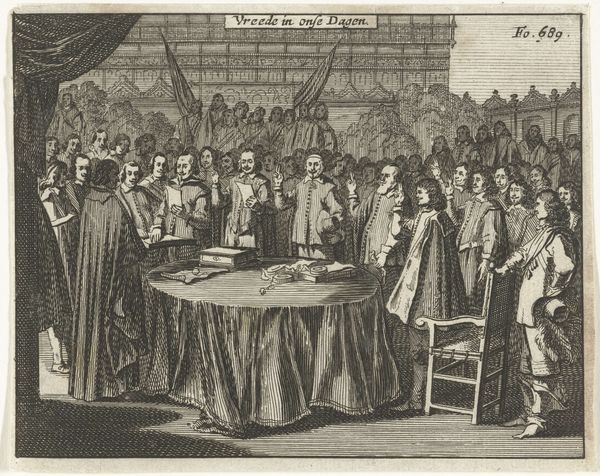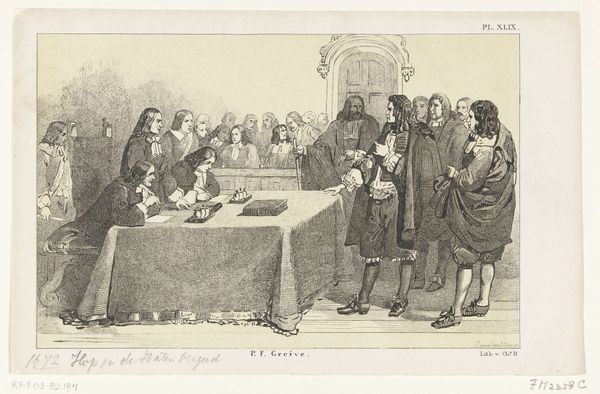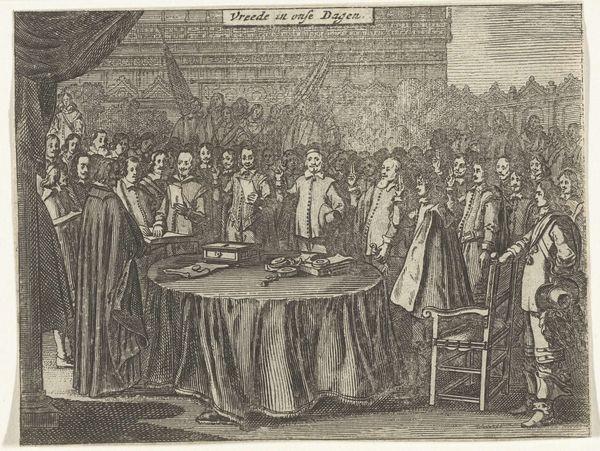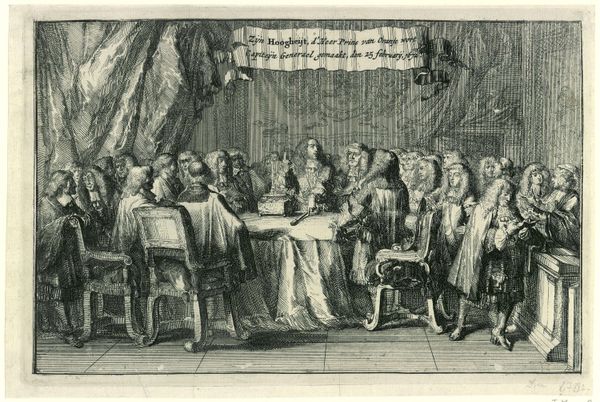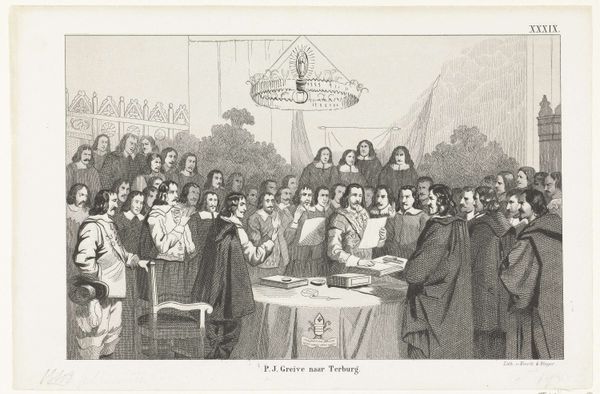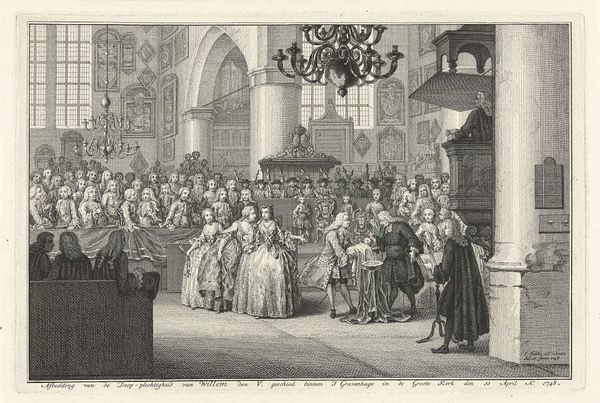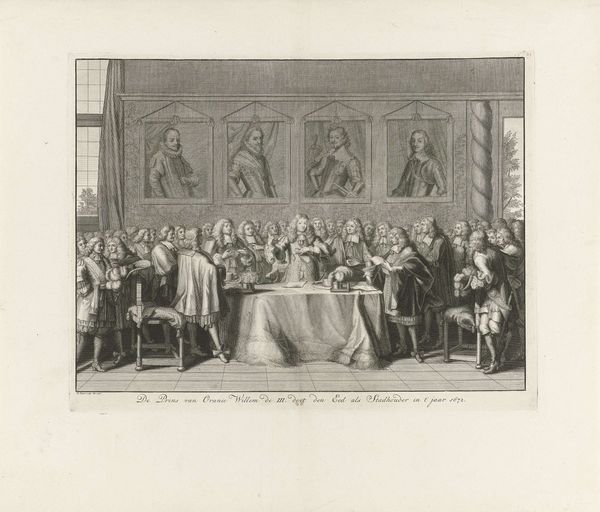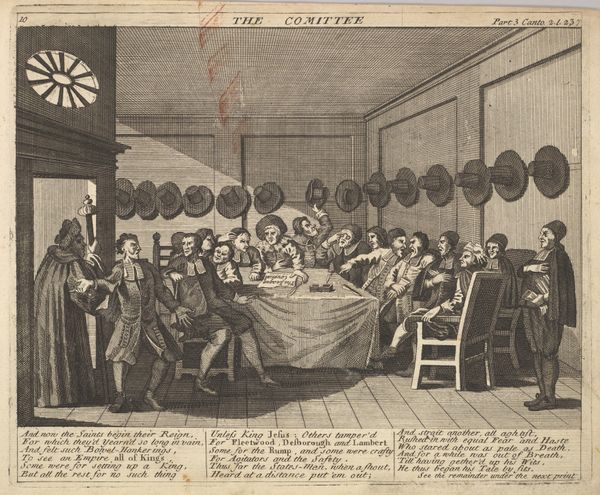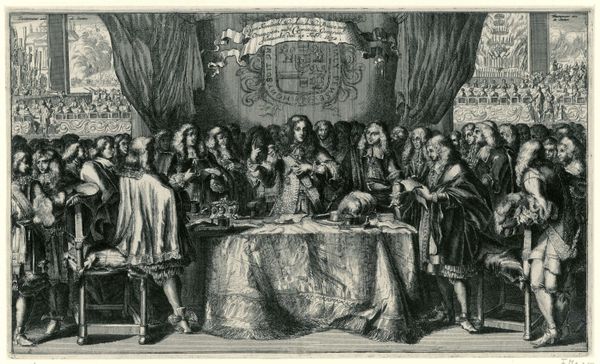
print, engraving
#
narrative-art
#
baroque
# print
#
old engraving style
#
group-portraits
#
history-painting
#
engraving
Dimensions: height 184 mm, width 254 mm
Copyright: Rijks Museum: Open Domain
This print, made in 1648 by an anonymous artist, commemorates the swearing of the Peace of Munster. It’s made using the technique of etching, a printmaking process that relies on the controlled corrosion of metal. The artist would have coated a copper plate with a waxy ground, scratched an image into it with a needle, then bathed the plate in acid. The incised lines would then hold ink, which could be transferred to paper. Etching was a relatively new technology at this time, prized for its capacity to capture fine detail. It allowed prints to be made and distributed widely, which is very much the point here. In this image, the artist meticulously captures the dignitaries and the rich interior where the Peace was ratified. The medium of printmaking itself becomes a form of diplomacy – making the image, and thus the idea of peace, go viral, as we might say today. Ultimately, the significance of this artwork extends beyond its aesthetic qualities. It serves as a reminder of how materials and making processes can be deeply intertwined with political and cultural moments, blurring the lines between art, craft, and social history.
Comments
No comments
Be the first to comment and join the conversation on the ultimate creative platform.
